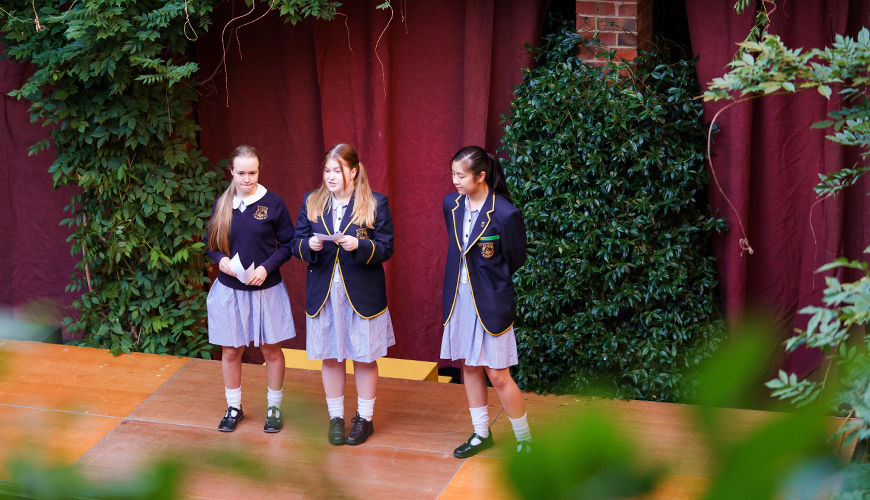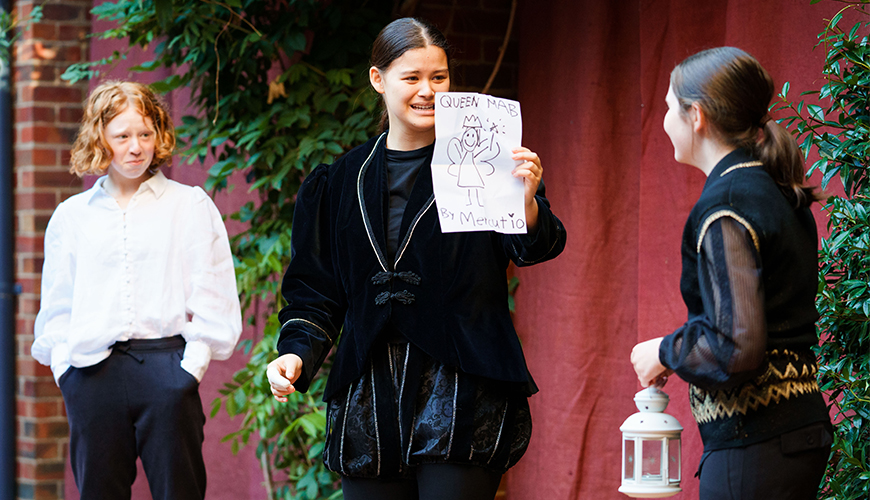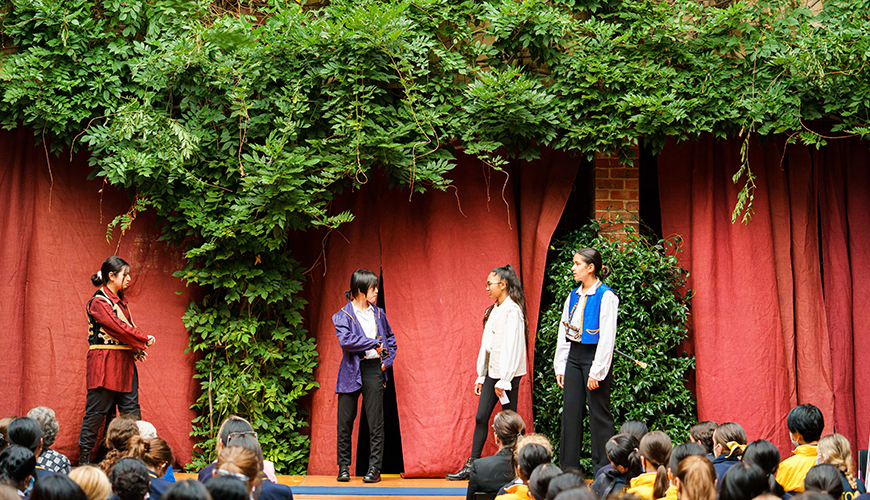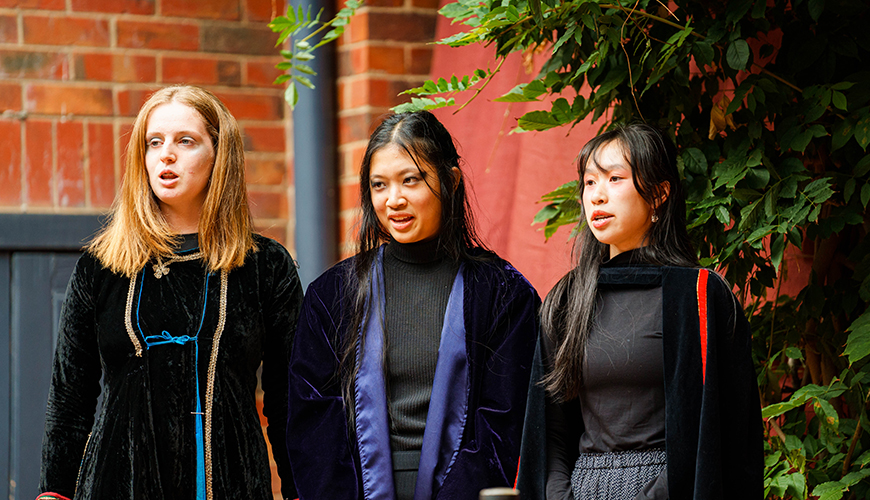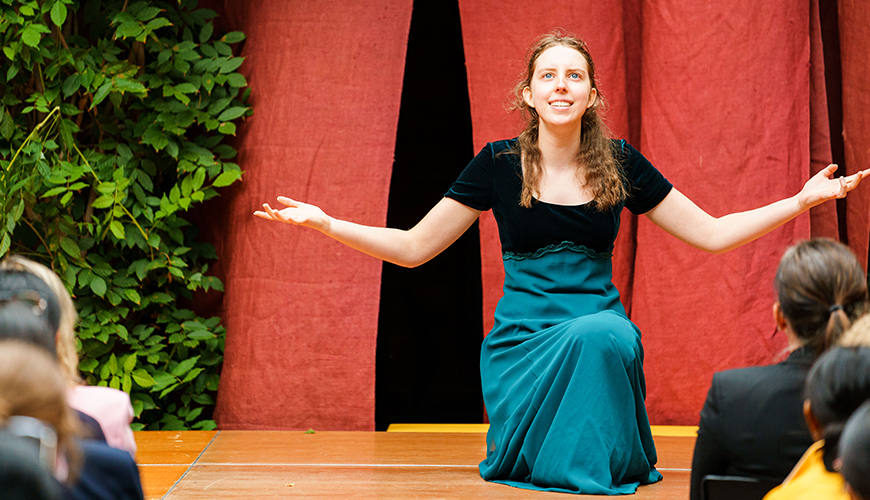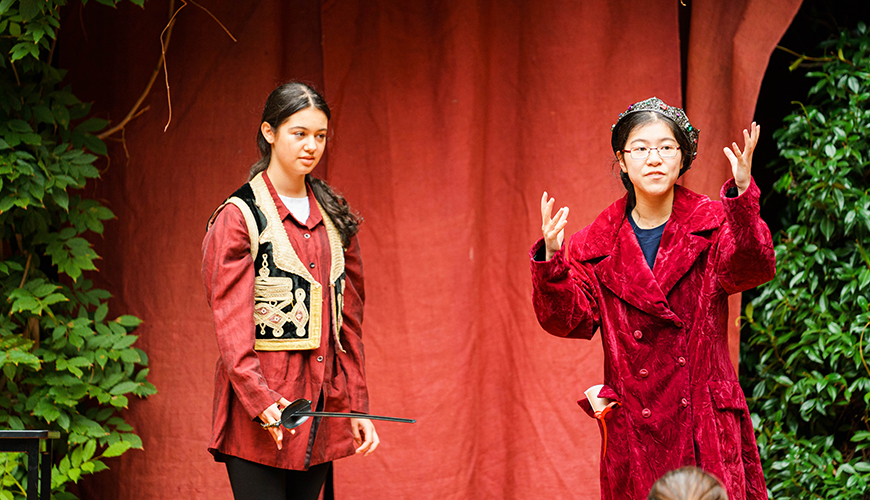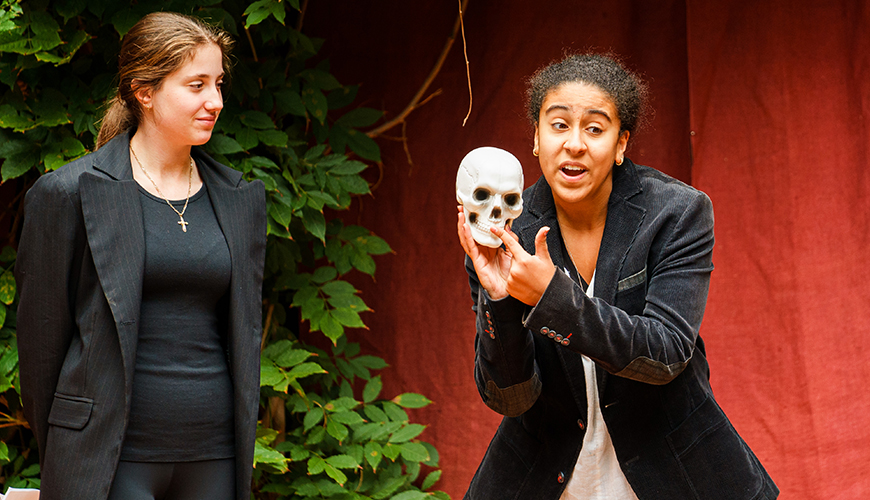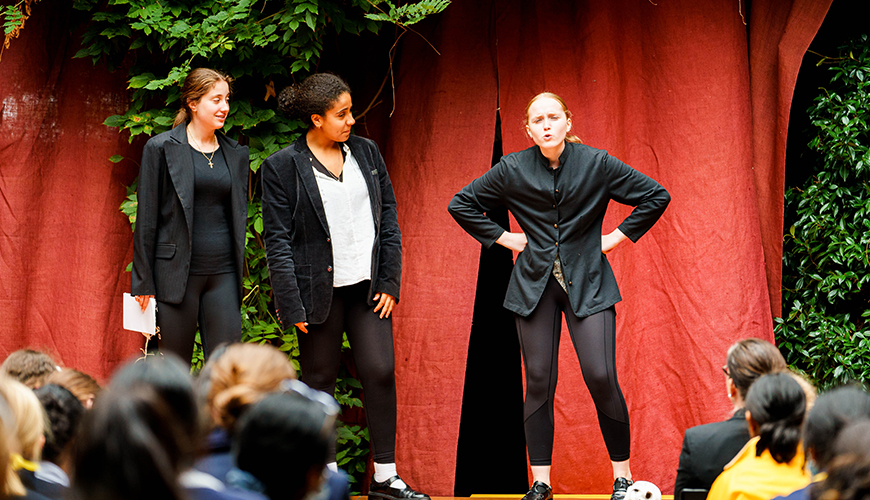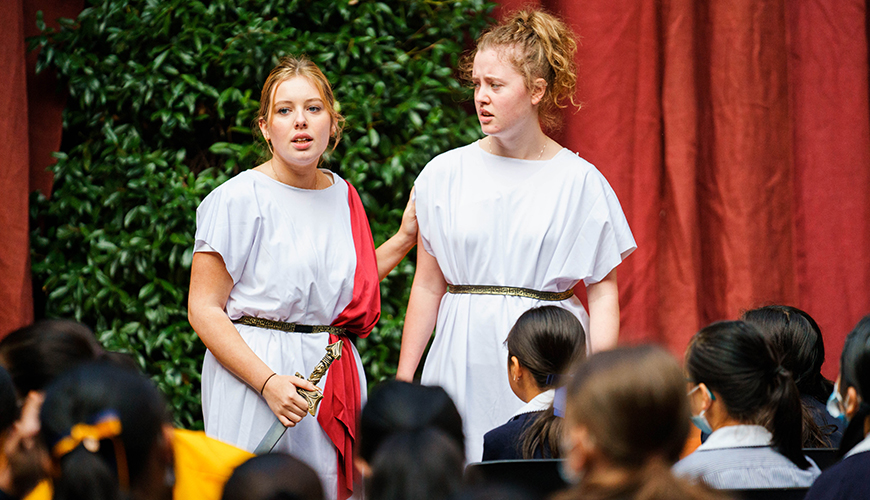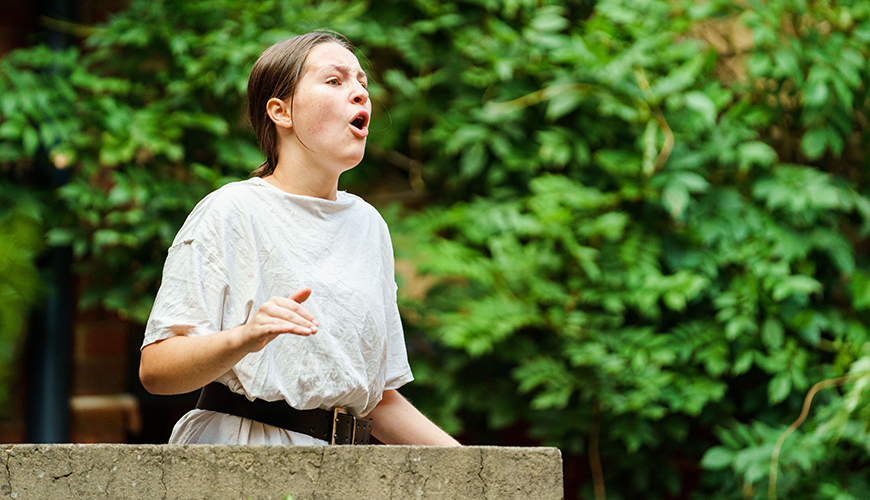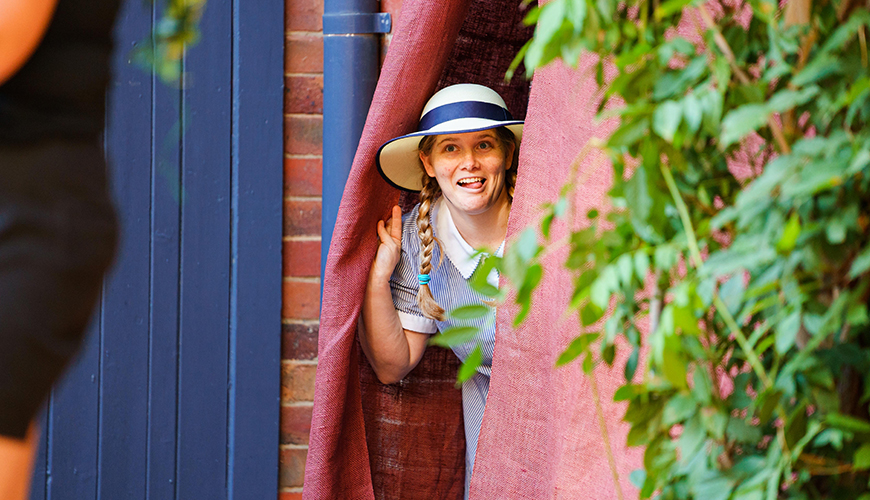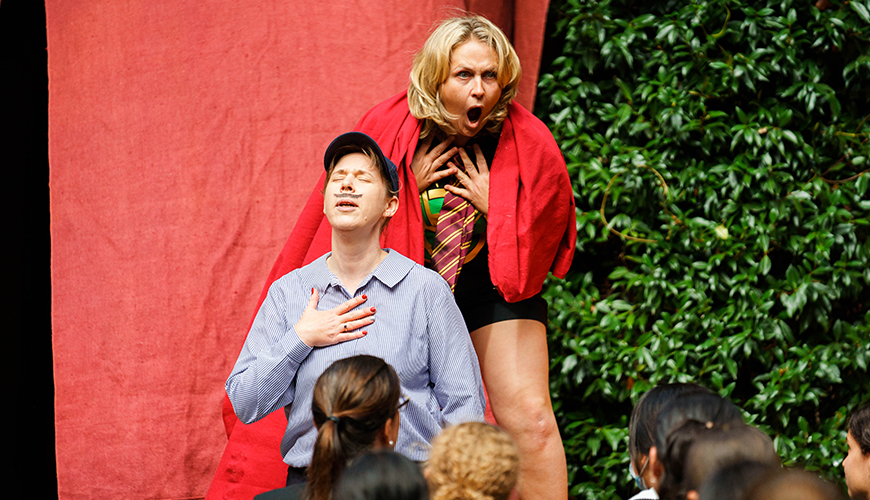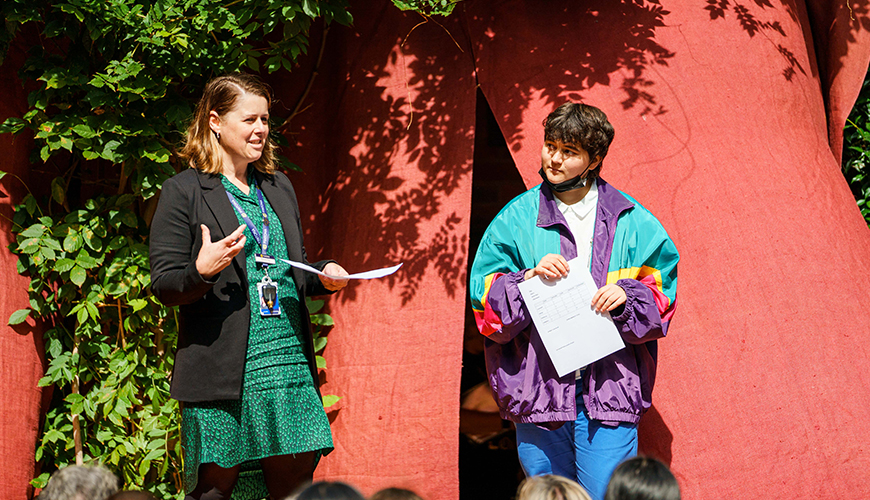
83rd Shakespeare Day
Youthful love, relentless despair, and intrigue were the central emotions explored in the scenes performed at the 83rd Shakespeare Day on Wednesday 23 March.

Bathed in the sun intermittently, the lusciously green wisteria plants embraced the columns of the Tourmont courtyard affectionately. The audience was greeted with the sight of the blood-red hessian curtains hanging majestically behind the stage as melodic sounds of the pedal harp drifted through the Tourmont courtyard.
This long-standing Fintonian tradition is entrenched within the English curriculum from Year 9 to Year 12, as students study various Shakespearean plays in Term 1. Using their knowledge of the characters, narration, and Shakespearean theatre conventions they select a scene and perform it to their class. One performance per class is selected to participate in Shakespeare Day.
The day began in warring Verona and the first three performances followed the story of the ‘star-crossed’ young lovers Romeo and Juliet. As we know, this is not really a love story for at its core the story examines the fatal consequences of long-standing, non-sensical hatred. In Romeo and Juliet, Shakespeare urges the audience to consider the importance of peace over senseless fighting as it can lead to prejudice and revenge, resulting in a society devoid of tolerance and overridden by fear and violence.
Travelling to the highlands of Scotland, the audience was then shown the consequences of unbridled ambition as the newly appointed Thane of Cawdor succumbs to temptation, heeding the prophecies of the three witches. Macbeth and his wife then embark on a murderous rampage in their quest for absolute power. Macbeth certainly takes its audience on a deadly journey, cautioning the audience against an unrestrained drive for power, leading to a loss of humanity and eternal damnation of the soul.
Set during the late Medieval Ages in Elsinore Castle in Denmark, the two Year 11 performances followed the story of the grief-stricken Hamlet. Following the suspicious and sudden death of his father (King Hamlet), the son Hamlet, sees a ghost purporting to be his dead father. The ghost reveals that he was murdered by Claudius, his brother, who is now the King of Denmark, after marrying King Hamlet’s widow, Gertrude. Plagued by a sense of filial duty to avenge his father’s wrongful death but also concerned about morality, Hamlet (the son) experiences extreme hesitancy. His hesitancy leads him to question the meaning of life and his introspection propels him to consider death. Shakespeare urges us to consider how vengeance only leads to a loss of morality, life and ultimately humanity.
Moving from Scotland to ancient Roman times the audience was transported to Rome in Italy, as an ensemble scene was performed by several Year 12 students dressed in Roman togas. Julius Caesar’s popularity amongst the working classes engenders a culture of mistrust, hatred, and scheming from his fellow Senators, who seek to ‘save’ the Roman Republic from becoming another empire under yoke of a potentially tyrannical Emperor. Presenting his inevitable assassination, the audience are yet again reminded by Shakespeare about the dangers of unbridled power.
The day ended in laughter as a scene from Much Ado About Nothing was enacted by four members of staff. Three noblemen (played in Fintona uninform by Elli Burdan, Nick Capriolo and Bryn Loughrey) attempt to trick Signor Benedick (played by Phillipa Elder) into believing the feminist Beatrice (played by Andrew Stringer) is in love with him. Despite Benedick proclaiming at the start of the scene he will die a bachelor, by the end he proclaims he meant he would ‘never live until he were married’, deciding he is in love with Beatrice, who is less than impressed. While farcical in its presentation, Much Ado About Nothing certainly takes its audience on a rollercoaster of love, showing us how easily we can doubt the love of another when our personal pride is at risk.
We look forward to the Tourmont courtyard being transformed again into the Shakespearean Globe Theatre, as next year another generation of Fintona students are recorded in our archives through their involvement in this precious tradition.
